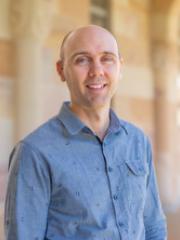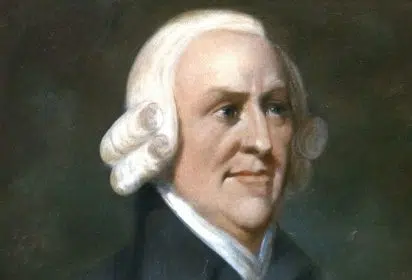15 January 2024, 2.30-4pm, ESSCA Lyon & Online – Andreas Ortmann (University of New South Wales)
Title: TBC

Andreas Ortmann is Professor of Experimental and Behavioural Economics, School of Economics, University of New South Wales Business School (Australia) and a visiting senior researcher at the Economics Institute of the Academy of Sciences of the Czech Republic.
Professor Ortmann is also co-editor-in-chief of Experimental Economics (ABS 3), and member of the editorial board of the Review of Behavioral Economics (ABS 2).
Click here to join the meeting
18th December 2023, 1.30-2.30pm – David Smerdon (University of Queensland)
Title: Proximity and Prejudice: A field experiment on gig workers’ discrimination against homoesxual job posters

Title of the presentation: “Proximity and Prejudice: A field experiment on gig workers’ discrimination against gay job posters” (co-authored with Sabina Albrecht (University of Queensland) and Samuel Pearson (University of Queensland)
Abstract: We investigate the influence of physical proximity on sexual-orientation discrimination within the gig economy. Utilising a field experiment on a prominent gig-economy platform that connects local errand service demand with freelance workers, we posted 1,200 unique jobs across six Australian cities. These jobs were experimentally manipulated to appear as being posted by either a gay or straight male, while also randomising the job’s proximity to the poster (inside or outside the house). The results show no discrimination against gay job posters for tasks located outside the house. However, for indoor tasks requiring close proximity to the poster, workers discriminated against gay job posters by making fewer offers and by generally engaging less with job posts. Additionally, indoor jobs posted by gay individuals attracted lower-quality but similarly-experienced workers compared to those posted by straight individuals, indicating that the observed discrimination is taste-based rather than statistically driven. Our results contribute to the discrimination literature by highlighting the moderating role of physical proximity, with potential implications for the broader labour market as remote-work options become more common.
Click here to join the meeting
23rd June – Angela Sutan (Burgundy School of Business)
Title: It’s better when I see you: using AR vizualizations to avoid stereotypes about board members’selection
6th April – Guillaume Hollard (École Polytechnique)
Title: Determinants and consequences of self-selection
Le département Economie, Droit et Société de l’ESSCA a organisé le jeudi 6 avril sur le campus de Lyon un après-midi de recherche sur le thème des méthodes expérimentales, avec l’intervention de Guillaume Hollard, Professeur d’économie à l’Ecole Polytechnique et Directeur de recherche au CNRS sur le thème “Determinants and consequences of self-selection”, qui s’appuie entre autres sur un travail en cours avec Fabien Perez (CREST, INSEE).
3 chercheurs ESSCA ont ensuite présenté leurs travaux récents :
- Wael Bousselmi : “Volatility Shocks and Higher Order Risk Attitudes and. An Experiment”, co-écrit avec Yukihiko Funaki, Waseda University
- Jeremy Celse: Projets “Social Norms Experiments”, co-écrit avec Erin Krupka, University of Michigan et Peguy Ndodjang Ngantchou, Excelia
- Alexandros Karakostas : “Virtue Signaling in Credence Goods Markets” co-écrit avec Loukas Balafoustas, Exeter Business School
L’occasion pour tous de découvrir le Behavioral and Experimental Lab de l’ESSCA :
- 2 salles dédiées à la recherche expérimentales sur le campus de Lyon
- 22 postes en réseau
- 1 équipement unique de mesures physiologiques pour capter et analyser l’état émotionnel (conductivité électrodermale et pouls) et le regard (eye-tracker)
- 1 équipement mobile pour des expérimentations en réel : transports en commun, centres commerciaux, magasins tests éphémères, etc.




